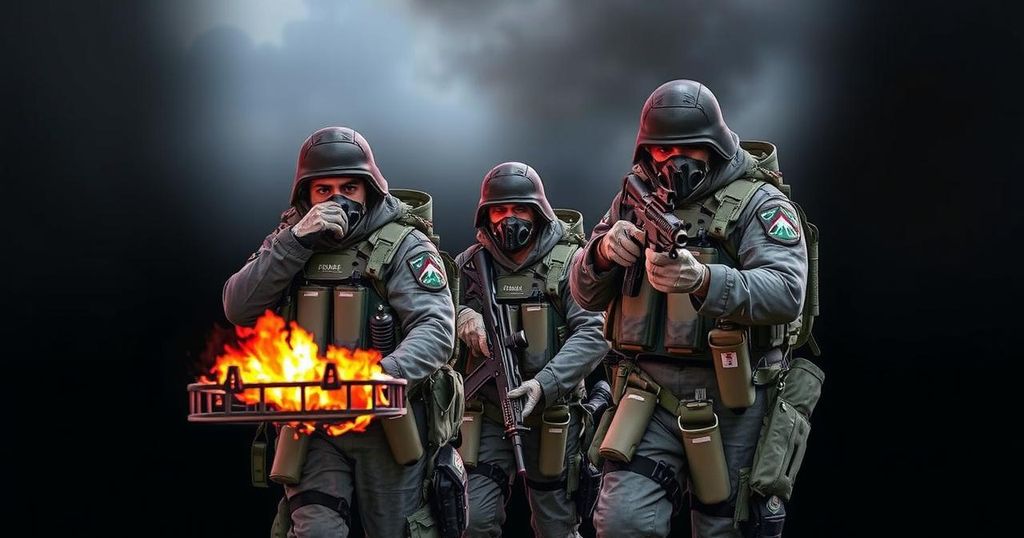Aleppo’s Surprise Recapture: A Shift in Syrian Conflict Dynamics

A recent offensive by Syrian rebels has led to the surprise recapture of Aleppo, highlighting a shift in the balance of power involving weakened support for the Assad regime. This change arises from Russian military reallocations due to the Ukraine war and Israeli strikes on Iranian proxies. The situation indicates a resurgence of conflict in Syria, even as other wars in the region show signs of de-escalation.
Recent developments in Aleppo have marked a significant shift in the Syrian civil conflict, as rebel forces launched a surprise offensive that has led to the recapture of the city from Syrian government control. The offensive highlights a frail state of the Assad regime, heavily influenced by distractions in Ukraine and ongoing conflicts in the Middle East, particularly against Iranian proxies. The withdrawal of Russian military support and the impact of Israeli operations against Iranian forces have contributed to this newfound vulnerability of Assad’s forces.
Aleppo has long been a focal point of battle since 2012, previously witnessing intense clashes that saw the Syrian government, bolstered by Russian air support, regain control of the city by 2016. The Idlib region to the northwest, however, has remained a stronghold for rebel groups, particularly Hei’at Tahrir al-Sham (HTS). Despite a ceasefire in place since 2020, the current crisis escalated as government forces faced a sudden retreat under coordinated rebel attacks, demonstrating the potency of surprise military strategies.
The weakened position of Assad’s regime can be attributed to multiple external conflicts. Russia, once a dominant supporter of Assad, has redirected significant military resources toward its invasion of Ukraine, diminishing its operational capacity in Syria. Moreover, the strategic withdrawal of advanced missile systems has visibly altered the balance of power. Airstrikes conducted by Russia have resulted in civilian casualties, yet they have not successfully thwarted the rebel advance.
Simultaneously, Israeli airstrikes against Iranian-backed forces in Syria and Hezbollah in Lebanon have crippled those influences, further destabilizing the Assad regime. Experts suggest that Israel’s ongoing military actions have deterred Iran from providing substantial military aid to Assad, potentially exacerbating the regime’s struggles. The timing of the HTS offensive correlates closely with a ceasefire between Israel and Hezbollah, pointing to an opportunistic maneuver.
The complexities of the regional conflict remain unresolved, as HTS’s motivations continue to drive its actions. Analysts recognize that despite the initial success of HTS’s attack, the situation reflects a broader, more precarious landscape for the Assad government. The irony persists that while one conflict may be de-escalating, another has ignited—a fundamental challenge for the stability of the Middle East.
The conflict in Syria has persisted since 2011, deeply affecting regional dynamics. Aleppo was a critical battleground during the Syrian civil war, previously held by various rebel groups until the Syrian government, aided by Russian forces, regained control in 2016. Meanwhile, the Idlib region has remained a stronghold for HTS and continues to be a significant point of contention in the ongoing civil war. The geopolitical situation has shifted with Russian interests focused in Ukraine and Israeli operations targeting Iranian proxies, resulting in a fragmented support structure for President Assad’s regime.
In summary, the recent fall of Aleppo to rebel forces underscores a dramatic shift in the Syrian conflict’s landscape. The dual influences of Russian military reallocations and Israeli actions against Iranian forces have critically undermined the strength of the Assad regime. As HTS has shown tactical prowess in capitalizing on these vulnerabilities, the conflict in Syria appears set to escalate rather than resolve. This ongoing instability signifies a complex interplay of regional conflicts that may have lasting implications for the Middle East.
Original Source: www.theguardian.com








